SKA Organisation (SKAO) is committed to the highest standards of business ethics and as such expects everyone involved in SKAO-related business to uphold the standards and expected professional behavior set out in SKA Code of Ethics page .
The code of ethics applies to every SKA collaborators and it is the reference guide defining the culture of this online community of contributors.
Code of Conduct for Meetings and Events
This Code of Conduct applies to all SKAO-organised or hosted meetings and events. It is also available for all SKAO-sponsored meetings and events if no other code is available. It is the responsibility of organisers to ensure that it is advertised appropriately to participants. Feel free to copy this text and place it directly on your meeting's website, with a link referring back to this page for more information.
The SKA Observatory (SKAO) aims to create a welcoming and inclusive environment where everyone feels they belong, there is fairness and respect for all individuals, and diverse perspectives and ideas thrive. This means cultural differences are to be respected, and harassment, bullying and discrimination will not be tolerated. More details are provided in the SKAO Code of Ethics.
All SKA meeting and event participants must contribute to an environment that encourages the creation and exchange of ideas, recognises and values differences and celebrates the diversity and contributions made by people of a range of cultures and backgrounds.
Expected behaviours
SKAO expects meeting organisers and Chairs to act as champions for Equality, Diversity and Inclusion, both by demonstrating behaviours consistent with this Code of Conduct and by ensuring it is adhered to by all meeting participants.
SKA meeting and event participants are expected to behave professionally, in accordance with this code together with any relevant policies of their employer. All communication should be appropriate for a professional audience including people of many different backgrounds. We further expect participants to:
- Act with kindness, compassion and understanding. Assume others are acting with a positive intent when unsure.
- Address and acknowledge everyone equally and ensure everyone has an equal opportunity to make comments, ask questions and voice opinions.
- Use inclusive language (e.g. use gender neutral terms to describe generic roles)
- Use social media responsibly, respecting both individuals and the organisation hosting the meeting
Unacceptable behaviour
- Harassment and sexist, racist or exclusionary comments, jokes or imagery. Harassment, discrimination or offensive comments on the grounds of gender or sex, race, colour, nationality, ethnic and national origin, religion and belief, age, marital or civil partner status, sexual orientation, gender identity and expression, gender reassignment, disability, pregnancy or maternity, family or carers responsibilities or any other protected characteristic. Harassment includes sustained disruption of talks or other events, inappropriate physical contact, sexual attention or innuendo, deliberate intimidation, stalking, and photography or recording of an individual without consent.
- Bullying, including unwelcome or unreasonable behaviour that demeans, intimidates, humiliates, or sabotages the work of people, either as individuals or as a group. Bullying behaviour is most often aggressive, persistent, and part of a pattern, but it can also occur as a single egregious incident. It is usually carried out by an individual but can also be an aspect of group behaviour.
Reporting and consequences of inappropriate behaviour
Meeting participants are encouraged to address perceived breaches to this Code of Conduct in a way that makes them most comfortable.
For minor infractions meeting participants may:
- Appropriately and respectfully correct language within the meeting
- Make the meeting chair aware of instances where certain individuals or demographics are being underrepresented or ignored in discussions
- Report incidents to the meeting chair, member of meeting or event organising committee, designated ally, or participating SKAO staff member who can help resolve the issue.
In the case of more serious breaches, including those related to bullying or harassment:
- Make a formal report to the SKAO which will then trigger the procedure outlined in the SKAO Code of Ethics.
Individuals asked to stop any inappropriate behaviour by an event organiser or chairperson are expected to comply immediately.
Anyone violating this Code of Conduct may be directed to leave the meeting or event (without a refund of any registration or admission fee). Serious breaches may result in further action by the SKAO.

